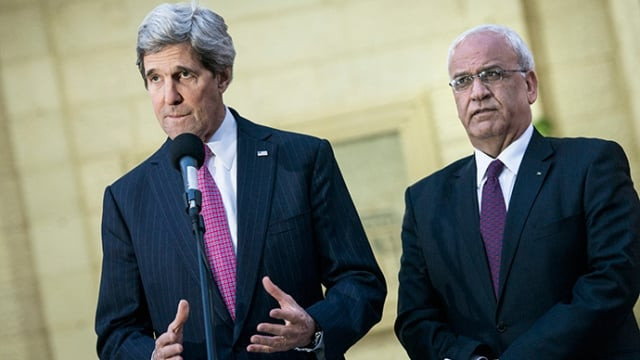Israel 'satisfied' as Palestinian UN resolution fails
Palestinians have warned if resolution failed, they would seek to join a number of international organisations

"Every Israeli who wants peace with our neighbours can only be satisfied with the results of this vote," deputy foreign minister Tzahi HaNegbi told public radio several hours after the resolution failed to pass within the 15-member council.
"This deals a blow to efforts by (Palestinian president) Mahmud Abbas to embarrass and isolate us," said HaNegbi, a close associate of Prime Minister Benjamin Netanyahu.
Eight countries voted in favour, among them three of the council's five permanent members - China, France and Russia - but the resolution fell short of winning the nine "yes" votes necessary for adoption in the 15-member council.
Australia and the United States voted against, and five other countries abstained, including Britain.
Israeli Foreign Minister Avigdor Lieberman said Palestinian attempts to secure their long-awaited state through "unilateral" moves at the United Nations would never achieve anything.
"The failure of the Palestinian vote at the Security Council should teach the Palestinians that provocations and attempts to force Israel into unilateral processes will not achieve them anything - quite the opposite," he said in a statement.
He denounced the countries which backed the resolution, particularly "some European states". Tiny Luxembourg joined France in voting for the text.
Lieberman said any state which wanted to see an end to the decades-old Middle East conflict "must act with responsibility and make clear to the Palestinians that decisions can only be taken around the negotiating table."
Public radio said although Israel had narrowly avoided a fiasco, it was only "a short-term victory" which would not halt international pressure for a peace deal with the Palestinians.
The Palestinians have warned that if the resolution failed, they would seek to join a number of international organisations including the International Criminal Court, where they could sue Israeli officials for war crimes.



















COMMENTS
Comments are moderated and generally will be posted if they are on-topic and not abusive.
For more information, please see our Comments FAQ